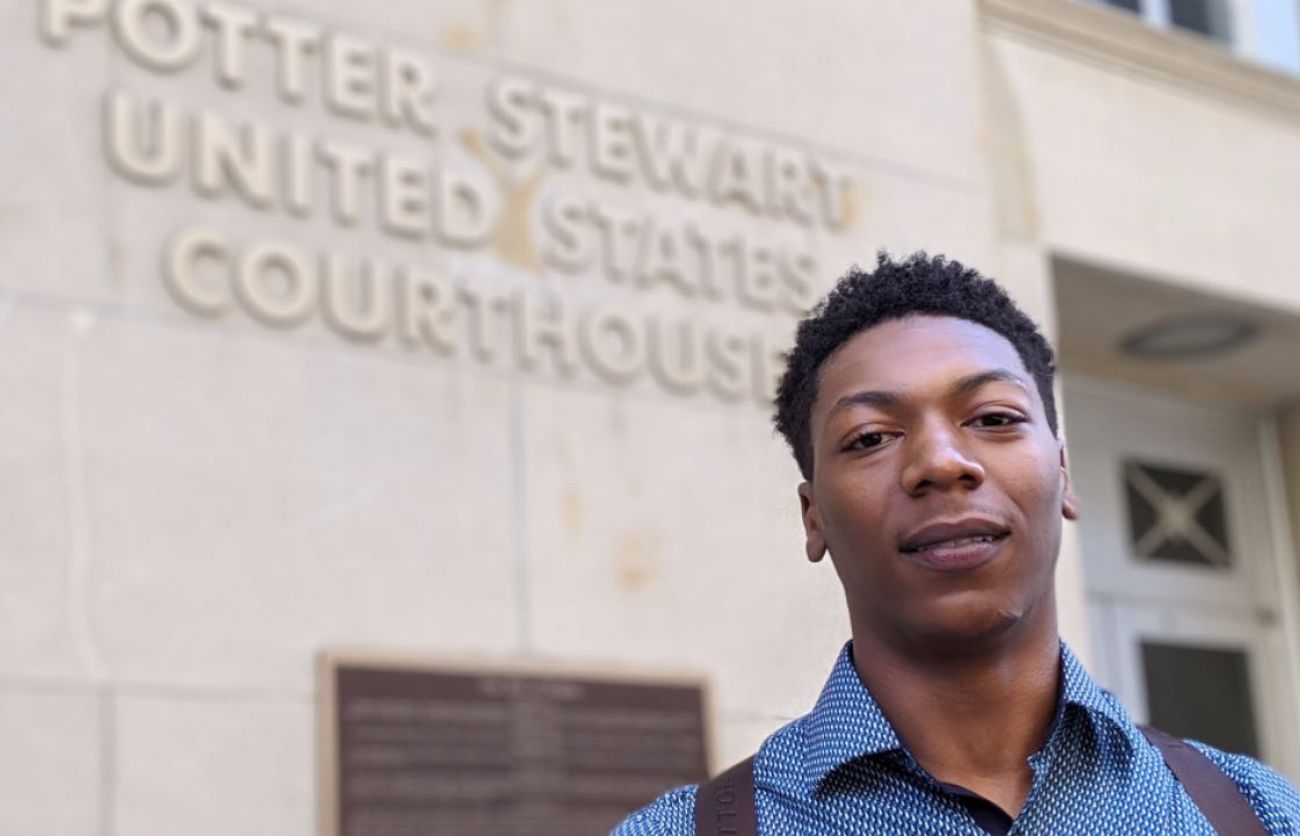Education is a fundamental right, appeals court rules in Detroit case

In an unprecedented ruling, a divided three-judge panel of the U.S. Sixth Circuit Court of Appeals ruled Thursday that students have a fundamental right to a basic education, based on a lawsuit brought by Detroit students who claimed Michigan hadn’t provided them with proper educational opportunities.
The ruling, which you can read here, is a major victory for Detroit education advocates, and allows the “right-to-read” lawsuit to move forward. The lawsuit had previously been dismissed by the U.S. District Court in Detroit.
The case will return to court in Detroit, unless the state of Michigan appeals the ruling to the U.S. Supreme Court.
The case, filed in 2016 on behalf of several Detroit students, argued that Michigan, which controlled the Detroit district for years, allowed it to deteriorate so badly that there weren’t enough books, teachers and furniture, creating an atmosphere where learning to read was near impossible.
The ruling could have a sweeping impact not only in Detroit but nationwide: Though the U.S. Supreme Court has ruled on similar cases over the years, it has specifically avoided a definitive ruling on whether citizens have a Constitution-protected right to an education.
The Detroit case has drawn nationwide attention from scholars, activists and economists who see the potential of a case that could expand the universe of rights.
Mark Rosenbaum, lead attorney for the plaintiffs, said the Detroit case, argued before the judges in an October, argued that conditions in Detroit schools were the “most egregious” in the nation: Some classes had just five books for 28 students, chairs for 37 in classes of over 50, and not enough teachers, forcing students to watch movies or educate themselves.
Test scores for Detroit Public Schools Community District students are well below the state average. In the 2018-19 school year, 12 percent of Detroit third-grade students were proficient or better in English language arts, which includes reading; statewide, 45 percent were proficient or better.
In Thursday’s 2-1 ruling, the majority, made up of Judges Eric Clay, a Clinton appointee to the court, and Jane Stranch, an Obama appointee, wrote:
“The recognition of a fundamental right is no small matter. This is particularly true when the right in question is something that the state must affirmatively provide. But just as this Court should not supplant the state’s policy judgments with its own, neither can we shrink from our obligation to recognize a right when it is foundational to our system of self-governance.
“Access to literacy is such a right. Its ubiquitous presence and evolution through our history has led the American people universally to expect it. And education—at least in the minimum form discussed here—is essential to nearly every interaction between a citizen and her government. Education has long been viewed as a great equalizer, giving all children a chance to meet or outperform society’s expectations, even when faced with substantial disparities in wealth and with past and ongoing racial inequality.
“Where, as Plaintiffs allege here, a group of children is relegated to a school system that does not provide even a plausible chance to attain literacy, we hold that the Constitution provides them with a remedy.”
In dissent, Appeals Court Judge Eric Murphy, an appointee of President Donald Trump, expressed sympathy for the plaintiffs, but said the courts were not the right place to reform schools. “If I sat in the state legislature or on the local school board, I would work diligently to investigate and remedy the serious problems that the plaintiffs assert,” Murphy wrote. “But I do not serve in those roles. And I see nothing in the complaint that gives federal judges the power to oversee Detroit’s schools in the name of the United States Constitution.”
Rosenbaum, the plaintiffs attorney, said the ruling was “an historic victory for the community of Detroit. Every Michigander who loves children should cheer this decision.”
“I am overjoyed with the Court’s decision recognizing that the Constitution guarantees a right to a basic minimum education,” Nessel said. “This recognition is the only way to guarantee that students who are required to attend school will actually have a teacher, adequate educational materials, and a physical environment that does not subject them to filth, unsafe drinking water, and physical danger. Education is a gateway to exercising other fundamental rights such as free speech and the right to citizenship, it is essential in order to function in today’s complex society, and it is a necessary vehicle to empower individuals to rise above circumstances that have been foisted on them through no fault of their own. Every child is entitled to the opportunity to participate fully in American life.”
Jamarria Hall, now 20, one of the plaintiffs in the case, said he still carries the educational scars of a low-quality education in Detroit schools. He is now a student at a community college in Tallahassee, Florida.
“I still have to work hard with tutors every day because of so much time I missed out on going to Detroit Public Schools,” Hall said.
“It’s not just important for [the plaintiffs, who have now mostly graduated],” Hall said. “It’s important for the next generation. It’s important for students in school to think they can be the next president of the United States or go out and step on the moon someday.
Hall said the lawsuit is meant to assure that Detroit students “have that opportunity to be able to learn on the same stage as everyone around the United States, no matter what zip code we were born in to.”
Rosenbaum said he hopes to meet with Gov. Gretchen Whitmer and Nessel to discuss ways to settle the case by agreeing to invest in Detroit schools.
Michigan Education Watch
Michigan Education Watch is made possible by generous financial support from:
Subscribe to Michigan Education Watch
See what new members are saying about why they donated to Bridge Michigan:
- “In order for this information to be accurate and unbiased it must be underwritten by its readers, not by special interests.” - Larry S.
- “Not many other media sources report on the topics Bridge does.” - Susan B.
- “Your journalism is outstanding and rare these days.” - Mark S.
If you want to ensure the future of nonpartisan, nonprofit Michigan journalism, please become a member today. You, too, will be asked why you donated and maybe we'll feature your quote next time!






